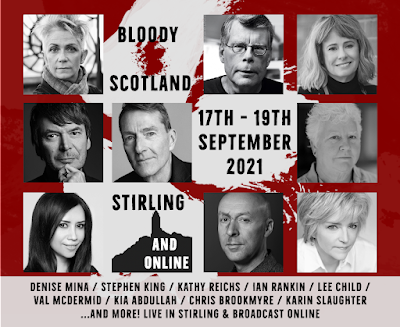The initial idea for my books starts with the hint of a character who gradually develops, both consciously and subconsciously. I try to create protagonists who are very morally complex. They make poor decisions and then continue to justify their questionable behaviour via their internal thoughts as they attempt to justify their actions. They all pass a point where it becomes easier for them to continue along a certain path rather than to back down and admit they may have made a mistake. I personally love writing in the first person. I like the immediacy of working through my characters’ warped thought processes; it’s worryingly good fun.
For every book, I go to ‘therapy’ in character. (A service called Characters on the Couch). I find the insight gained into the backgrounds I have created for each character an invaluable tool of reference whilst building their worlds and figuring out how they would authentically react in various scenarios.
The character spark for my first novel, The Perfect Girlfriend, came about when I was working as cabin crew. I was changing out of uniform one day at Heathrow before travelling home on public transport. Whilst doing so, I experienced this strong sense of returning to anonymity as I changed into my jeans and t-shirt and it made me think about our work personas. With the protagonist, Juliette, I wanted to create someone who wasn’t merely hiding her true self at work, she was doing so in all areas of her life.
My second novel, The Last Wife, tells the story of Marie, a troubled and envious woman, prone to lying, who takes over the life of her dead best friend, Nina, only to discover that she didn’t know her friend quite as well as she thought. The character spark came about when I was setting up a book group in my local village. While researching the type of books commonly read at book clubs, I was very surprised to stumble across online stories of book groups which didn’t seem as friendly or inclusive. It got me thinking about Marie’s character, how she could try and shoehorn herself into Nina’s old life, by joining the village book group Nina had created and taking over the running of it.
My third novel, The Ex-Husband, is about Charlotte, a former con artist who finds the roles are reversed when a former victim seeks revenge. The character spark was something quite different: towel art. My husband used to work away on ships and on one trip, one of the housekeeper’s was fantastic at creating unique towel art. My husband would send me photos and this made me think (not sure what this says about me or my mind) what if, instead of the towel art being a welcome sight on your bed each night, what if it was something sinister? Something which made a character fearful and if so, why such a thing would happen. In The Ex-Husband, whilst Charlotte is trapped onboard a superyacht in the middle of the Caribbean Sea, she finds towel art shaped into a skull with dark seashells for eyes and teeth on her cabin bed.
In my fourth, as yet untitled novel, the protagonist, Florence, is struggling with identity and her true place in the world. The spark for this idea loosely came about not long after someone close to me received a dementia diagnosis. It brought about a strong desire in me to look back on my own childhood and maybe consider the impact living in different countries had on my love of travel and writing.
I’m sometimes asked if any of my characters are based on real people and although the answer is no, life experiences of my own naturally do creep in. Juliette in The Perfect Girlfriend is a flight attendant. The Last Wife is set in New Forest, an area I know well. I loved the idea of the vast, stunning forest as a setting. Marie is a photographer and I spent time with a local photographer, learning the basics. The Ex-Husband was written during lockdown, so I’m sure it was definitely wishful thinking to set the book in the Caribbean! The research I did into scams and con artists was another fascinating world to explore.
One theme I recently noticed is that all my female protagonists’ names end in ‘e.’ Juliette, Marie, Charlotte and Florence. It wasn’t done consciously but I quite like that this link occurred, despite the books all being stand-alones.
The Ex-Husband by Karen Hamilton (Wildfire, £16.99) Out Now
Charlotte and Sam were partners. In life, and in crime. They never stole from anyone who couldn't afford it. Wealthy clients, luxury cruise ships. It was easy money, and harmless. At least, that's what Charlotte told herself, until the world caved in on her. But now, years after she tried to put that past life behind her, it comes rushing back when her estranged ex-husband Sam suddenly goes missing - and someone threatens to expose what they did. Desperate to escape whoever is tormenting her, Charlotte takes a job as events planner for an engagement party onboard a superyacht in the Caribbean. For a while, her plan seems to have worked, nothing but open ocean and clear skies ahead. Until it becomes clear that she's no longer a thousand miles away from harm. Because whoever is behind it all is onboard too. And now there's nowhere left to run.
More information about Karen Hamilton and her books can be found on her website. You can also find her on Twitter @kJHAuthor





























